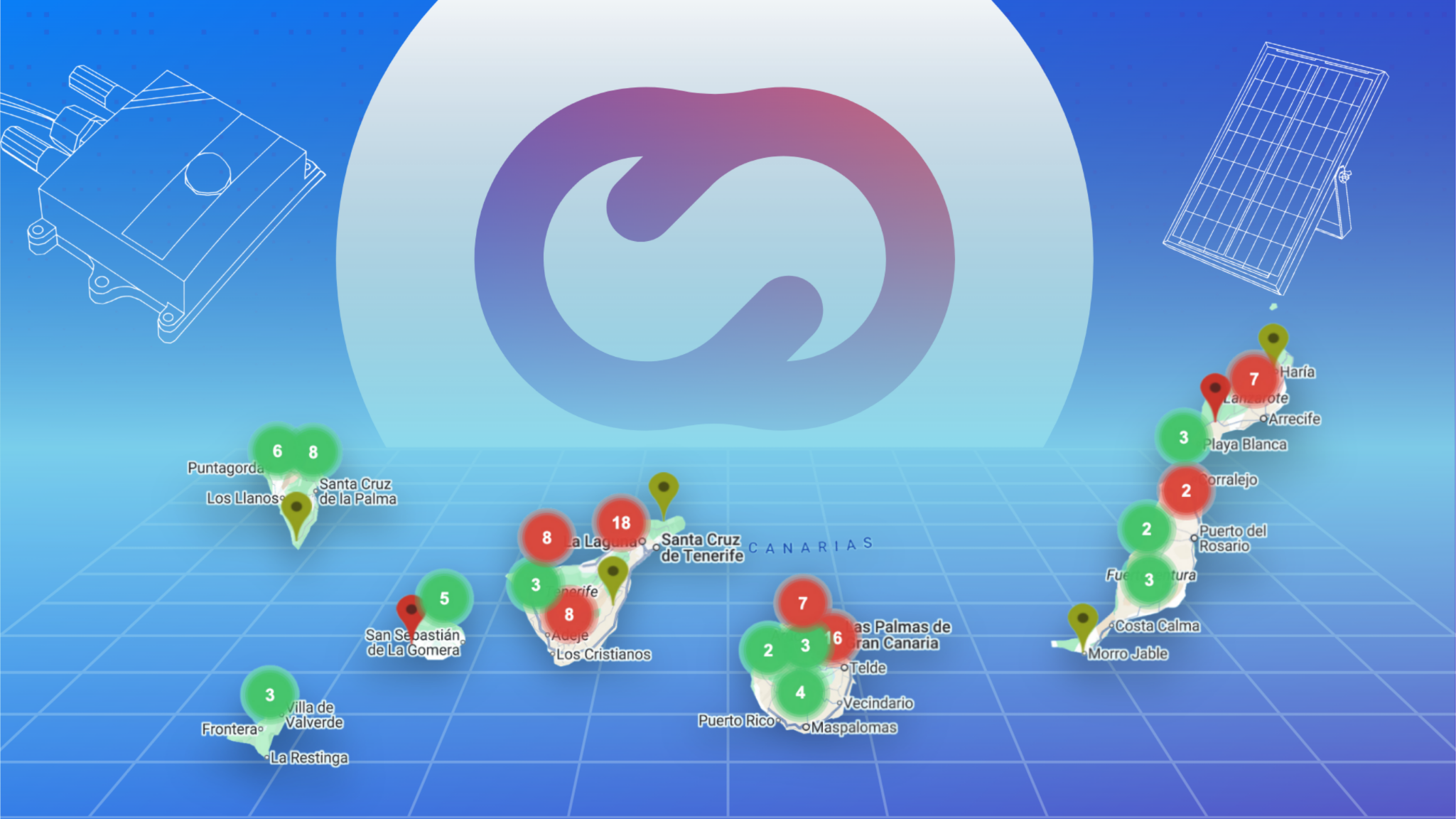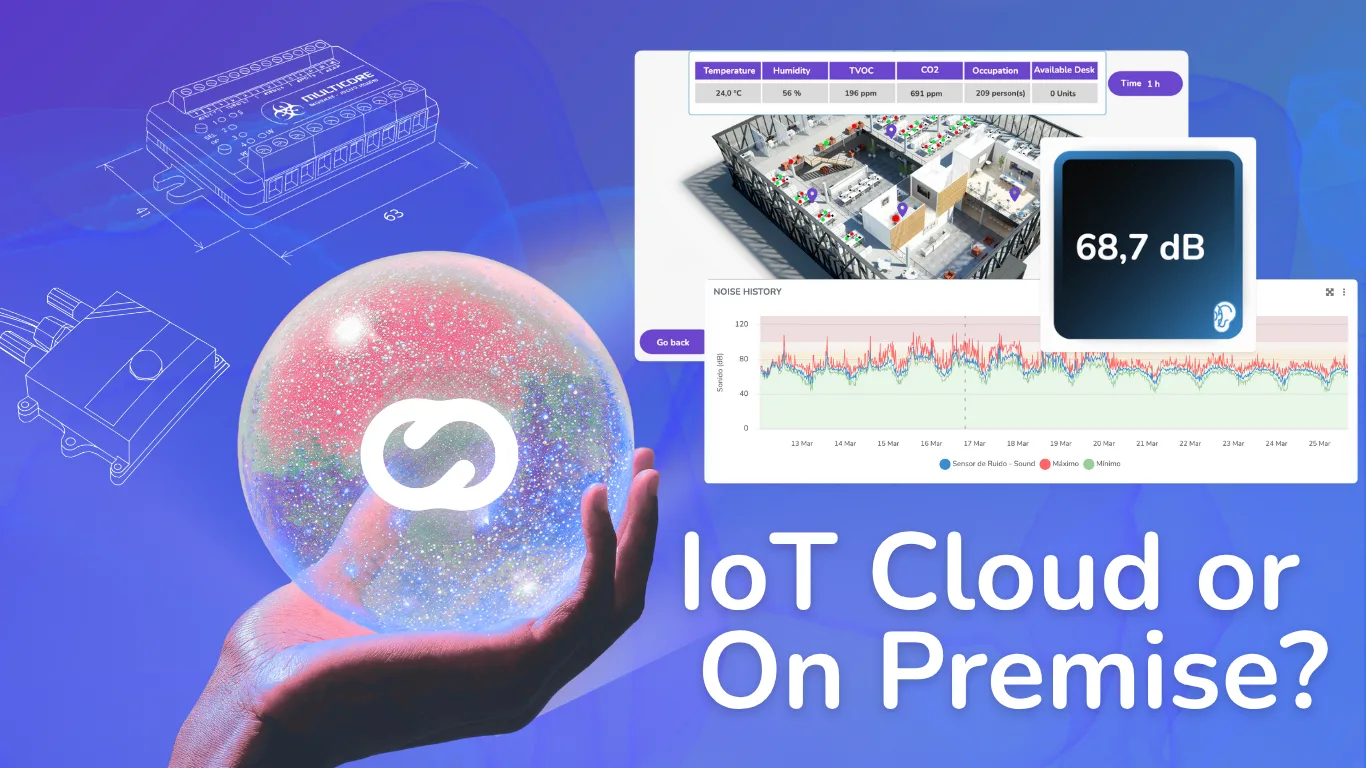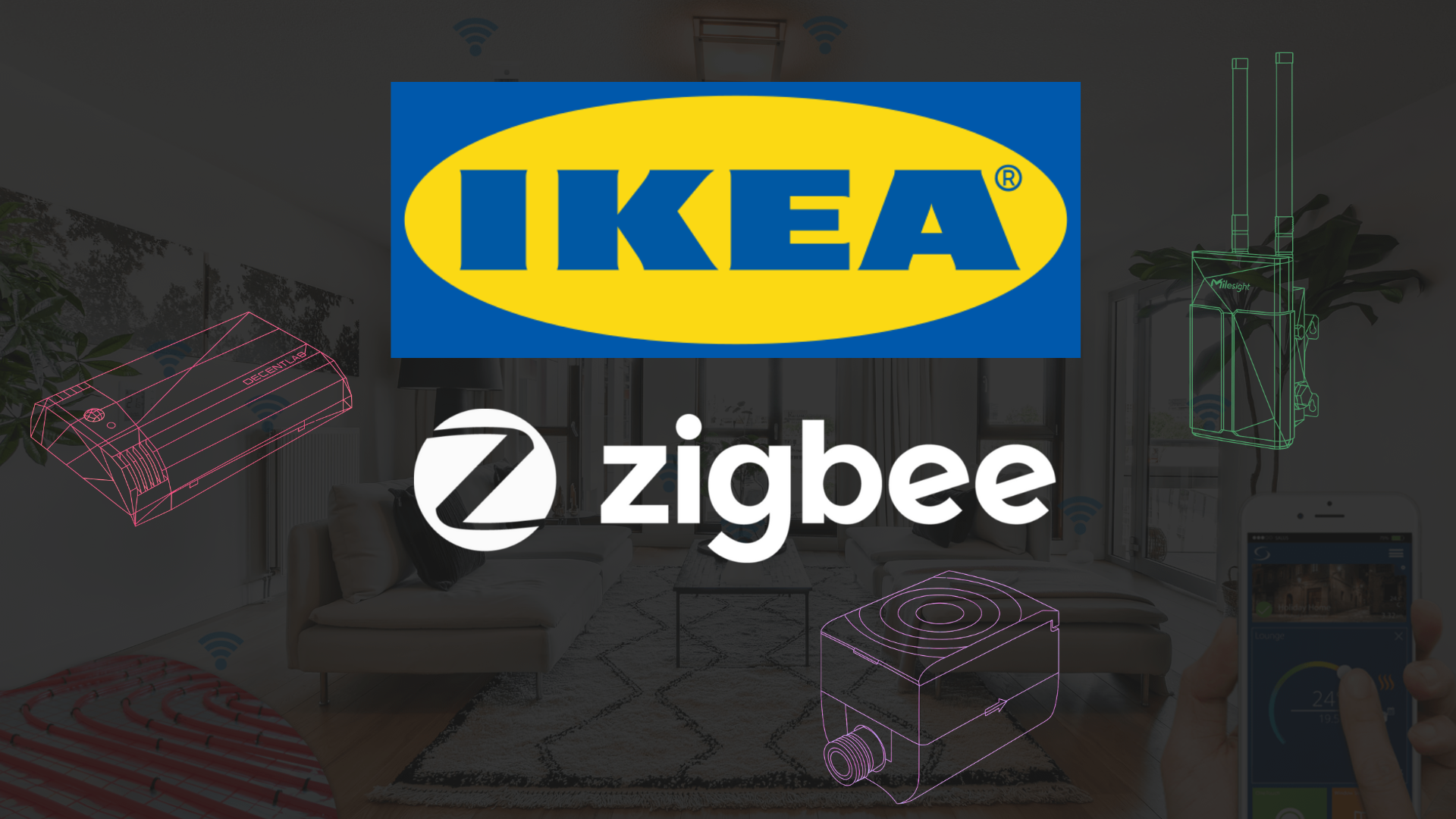Imagine a classroom in El Hierro, Canary Islands, at noon on a June day. The air is heavy, heat clings to your skin, and the fan’s hum barely competes with the swelter drifting in through the window. For a child trying to grasp mathematics, every extra degree is an invisible wall that blocks concentration. This isn’t just discomfort; it’s a barrier to learning. This silent crisis is why climate monitoring in educational centers has gone from being a luxury to an urgent necessity. A barrier that, according to Harvard research, reduces academic performance by 1% for every half degree the thermometer rises. In the Canary Islands, this barrier is turning into an educational drama.
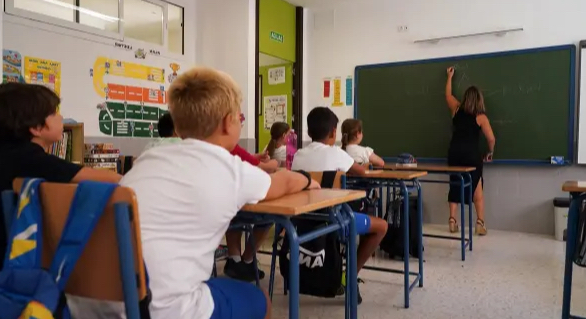
In an archipelago like the Canary Islands, facing a climate crisis with unprecedented heat waves, ensuring an optimal learning environment has become a top priority. This is the success story of how the Gear Studio platform from Cloud Studio IoT was the pillar that enabled the Canary Islands Government, through the public company Gesplan, to carry out a massive deployment at unprecedented speed and scale.
What was initially projected as a traditional 79-day job by the team was completed in just 18 effective working days, a 77% reduction in implementation time without sacrificing quality, proving the capacity to bring an Internet of Things project beyond the pilot phase.
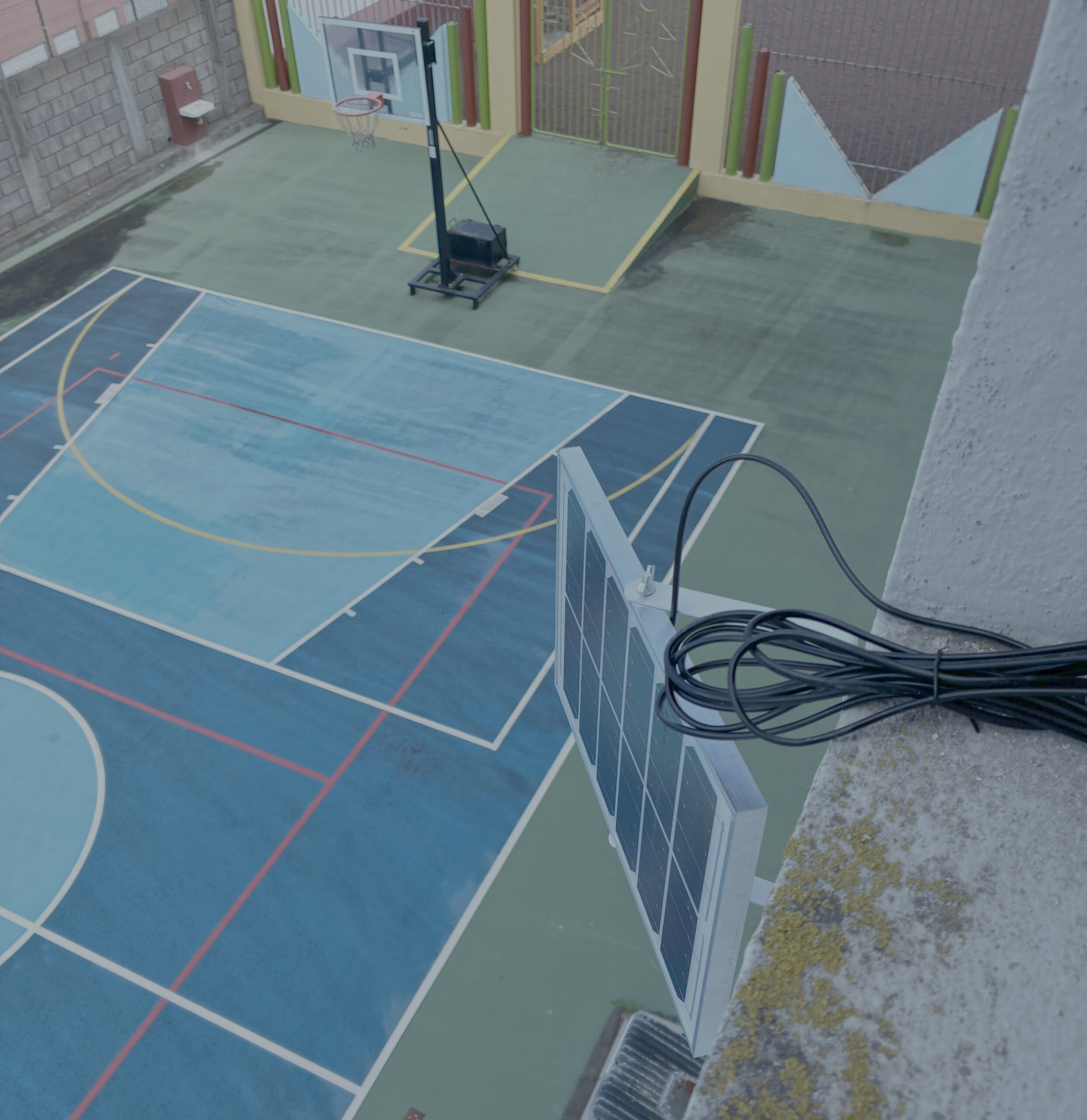
The Challenge: Climate, Scale, and Unprecedented Logistics
The Canary Islands Government faced a double challenge. On one hand, a climate emergency demanding a fast and effective solution. On the other, the technical challenges of implementing a large-scale climate monitoring system in educational centers:
- Massive Scale and Fleet Management: The goal was to provision, install, and manage 240 devices remotely in 120 schools. This required automated lifecycle management to secure and administer each sensor.
- Extreme Logistic Complexity: Coordinating installation in 120 locations across 7 islands meant surpassing 6 ferry routes, over 1,500 km by road, and more than 800 km by sea. A total of over 2,000 kilometers.
- Reliability of Connectivity and Data: Reliable 4G/LTE connectivity was essential, along with guaranteed correct ingestion and visualization of temperature, humidity, and air quality data in real time.
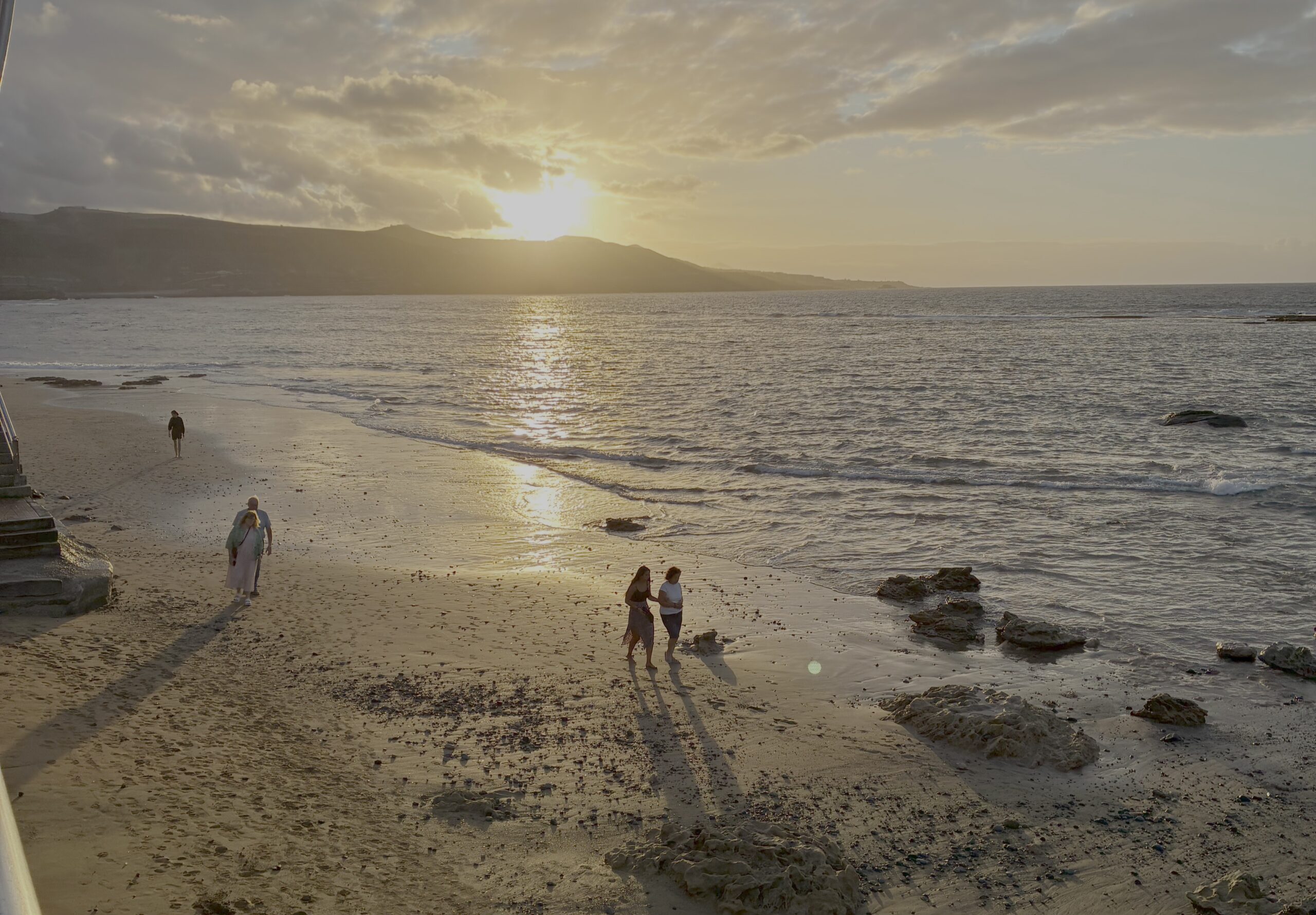
The Solution: An IoT Platform Orchestrating Every Phase
Our low-code IoT platform, Gear Studio, acted as the central axis orchestrating each phase of the project, proving to be the ideal tool for such an ambitious climate monitoring in educational centers initiative.
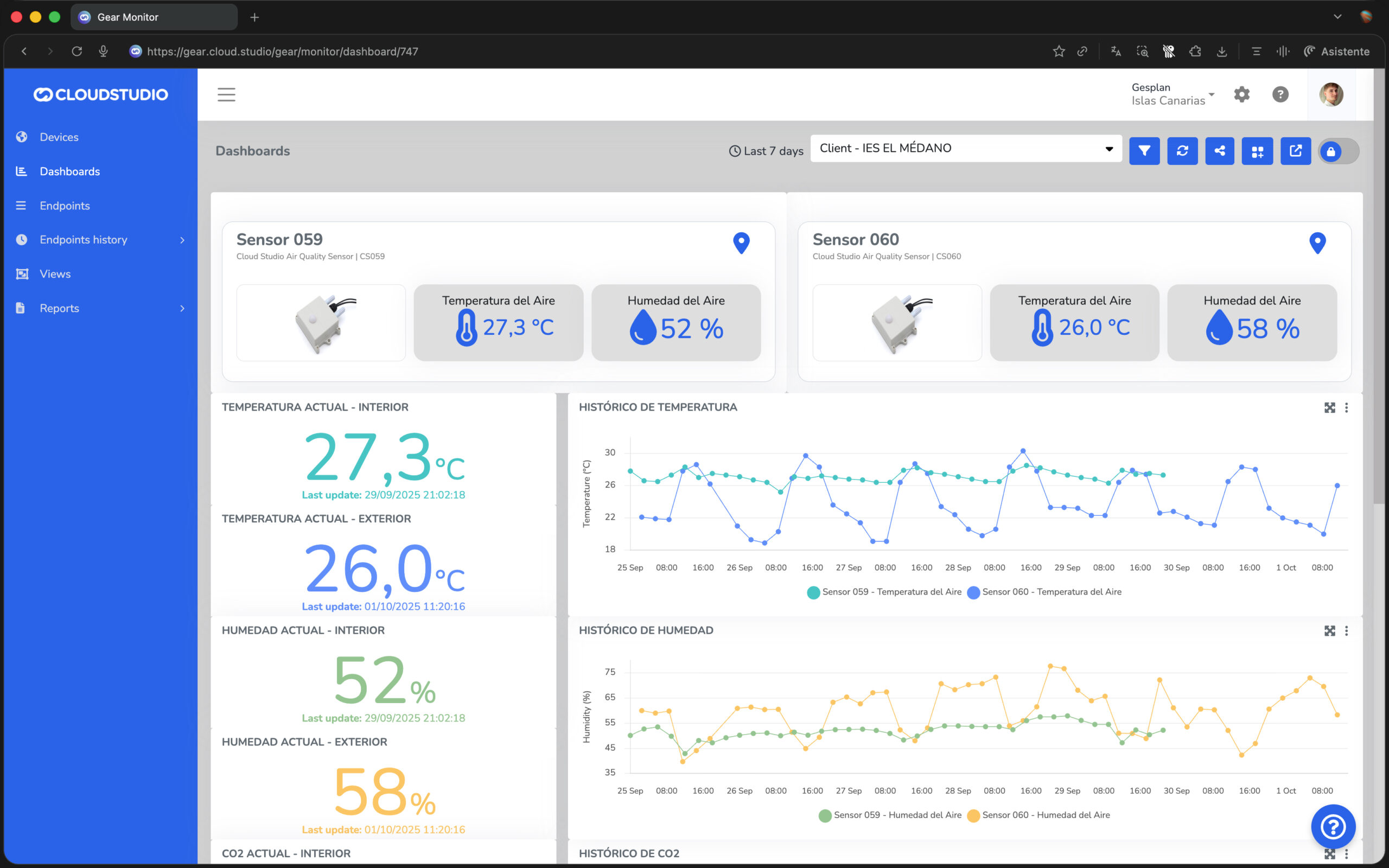
1. Scalable Management and Provisioning
With Gear Studio, along with apps like MQTT Explorer and Arduino IDE, credentials, configurations, and MQTT topics for the 240 devices were centrally managed, ensuring an instant and error-free launch.
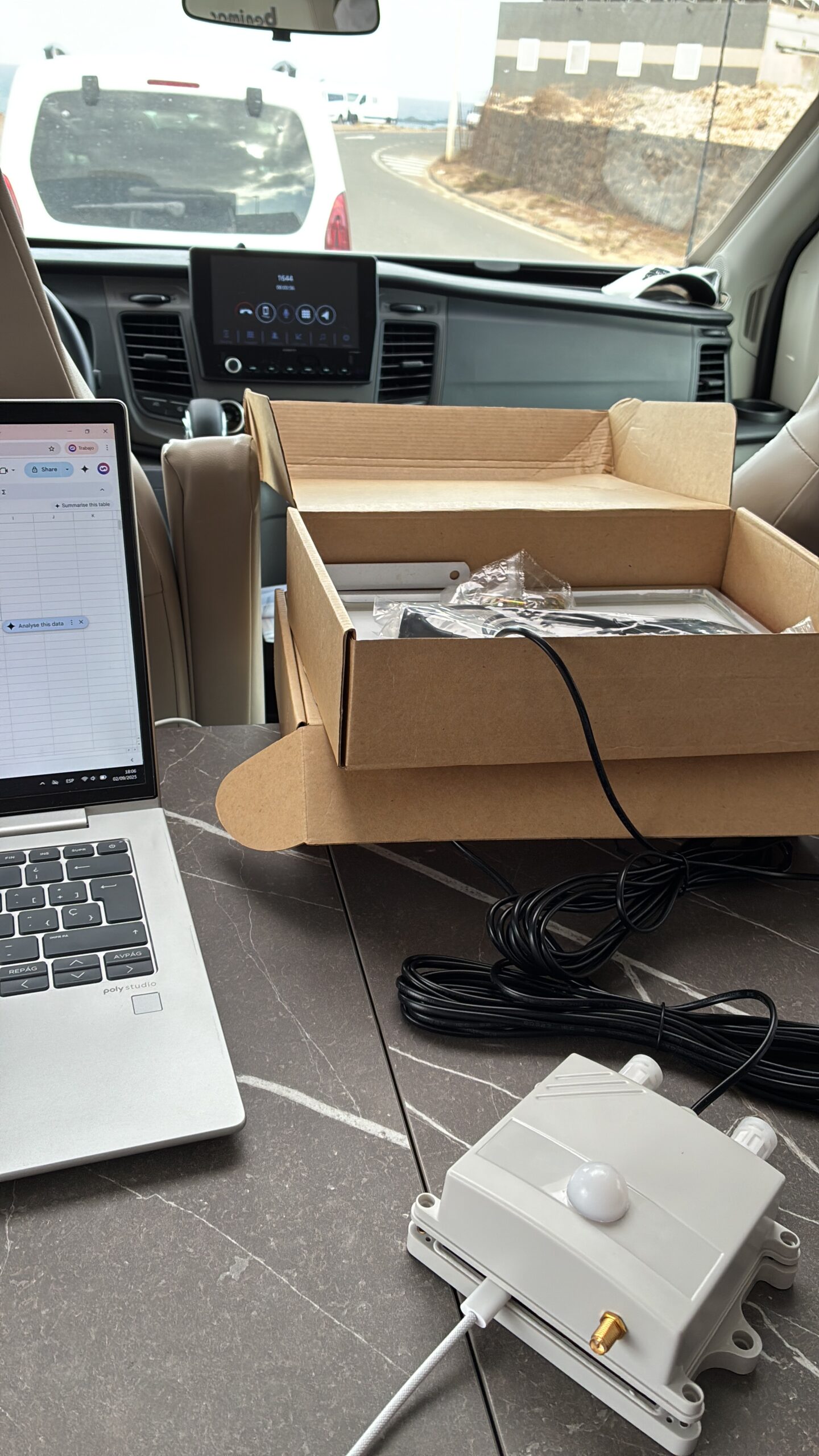
2. Agnostic Hardware Integration
The Makerfabs 4G LTE Air Monitor, a 4G device with solar charging, was selected. Our platform, being agnostic, integrated with it without custom development, ingesting all data natively.
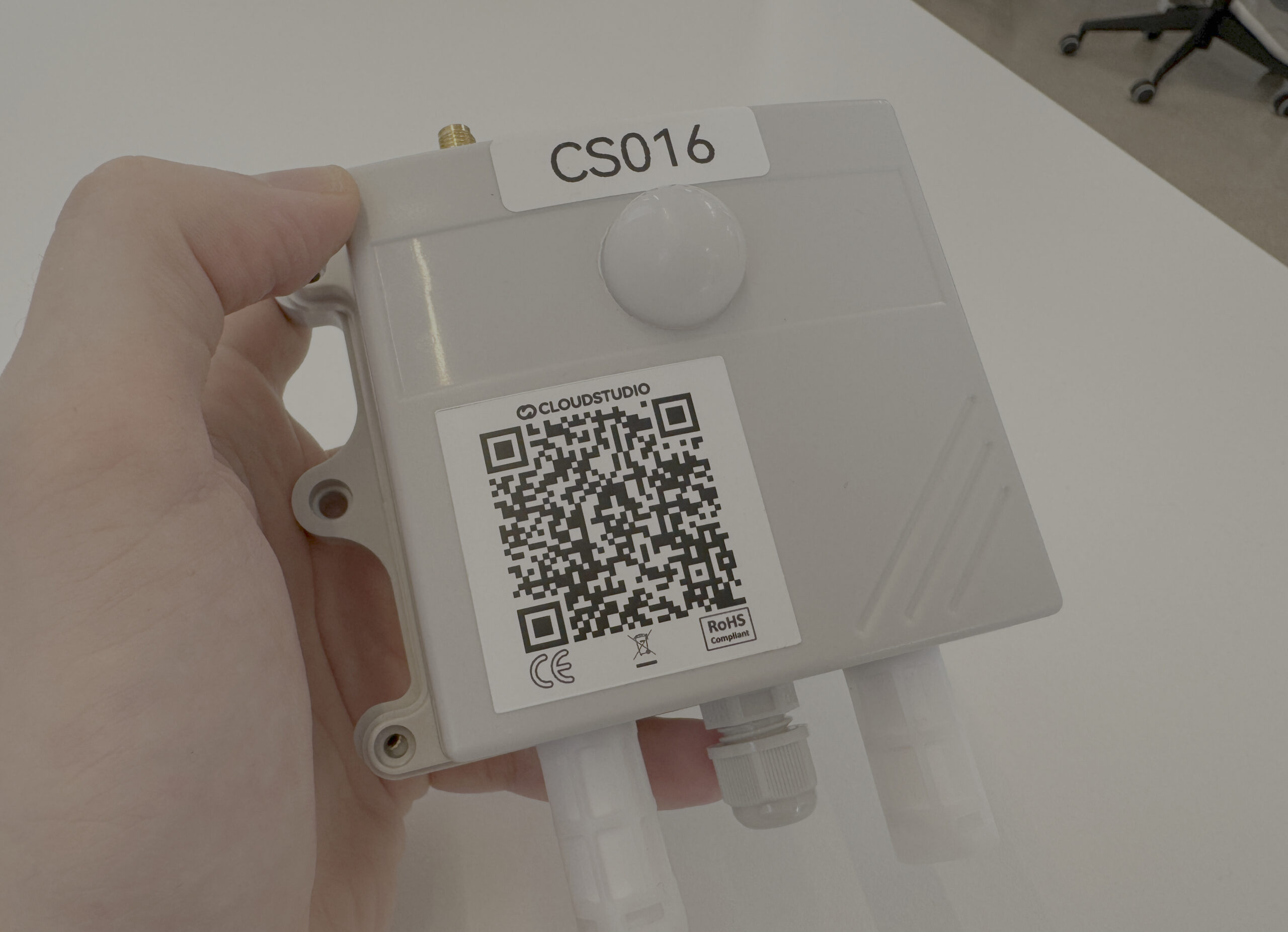
3. Strategic Installation Methodology
Two sensors were installed per center: one inside the most adversely affected classroom and one outside for reference, ensuring data relevance for accurate climate monitoring in educational centers.
4. Real-Time Visualization and Value Delivery
Gear Studio enabled the configuration of 120 personalized dashboards and generated public links, empowering the education community to use this data in classes and projects. Additionally, a public support portal was created with all the information.
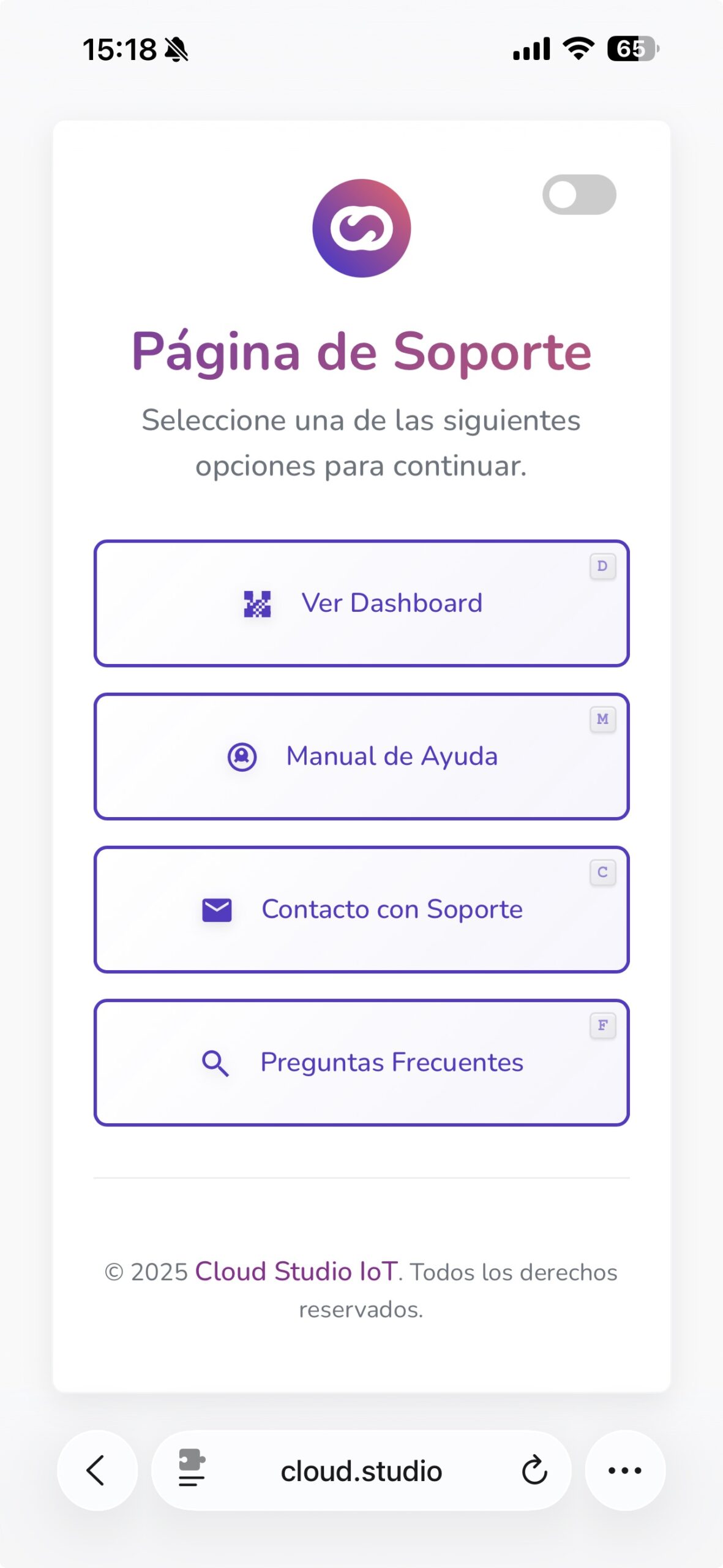
Chronicle of a Mission: The Integrators Behind the Deployment
Deploying 240 sensors across 7 islands isn’t measured only in metrics, but in hours on the road, ferry trips, and constant troubleshooting. For our team, every day was a race against the unpredictable geography of the archipelago. It wasn’t just about installing a device; it was about reaching the classroom, coordinating with principals, and solving problems no manual could foresee. This experience reminded us that even the most powerful IoT platform only comes to life thanks to the ingenuity and resilience of technicians in the field. They didn’t just connect sensors; they connected schools to the future.
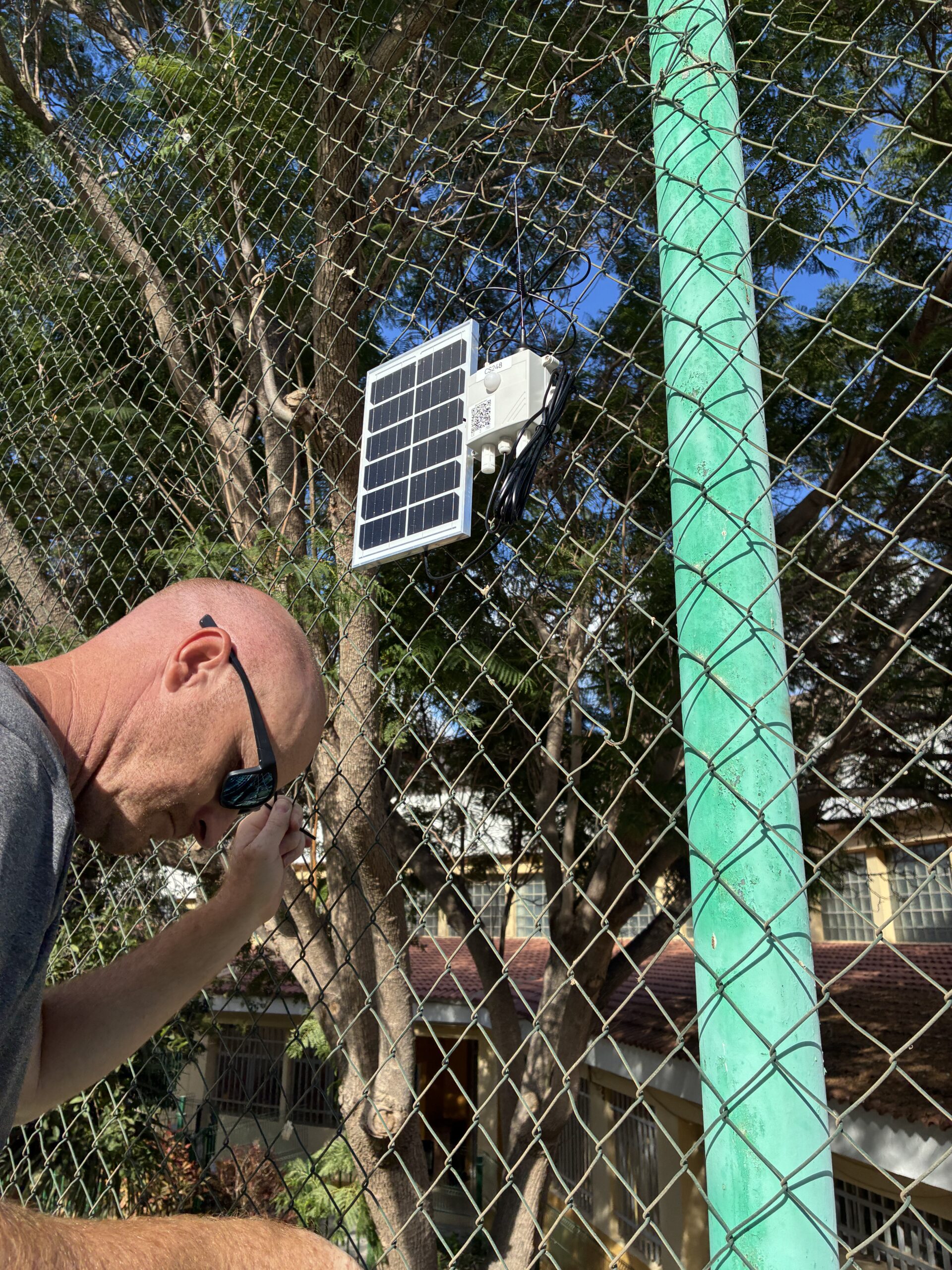
Impact: From Data to Policy Thanks to Climate Monitoring in Educational Centers
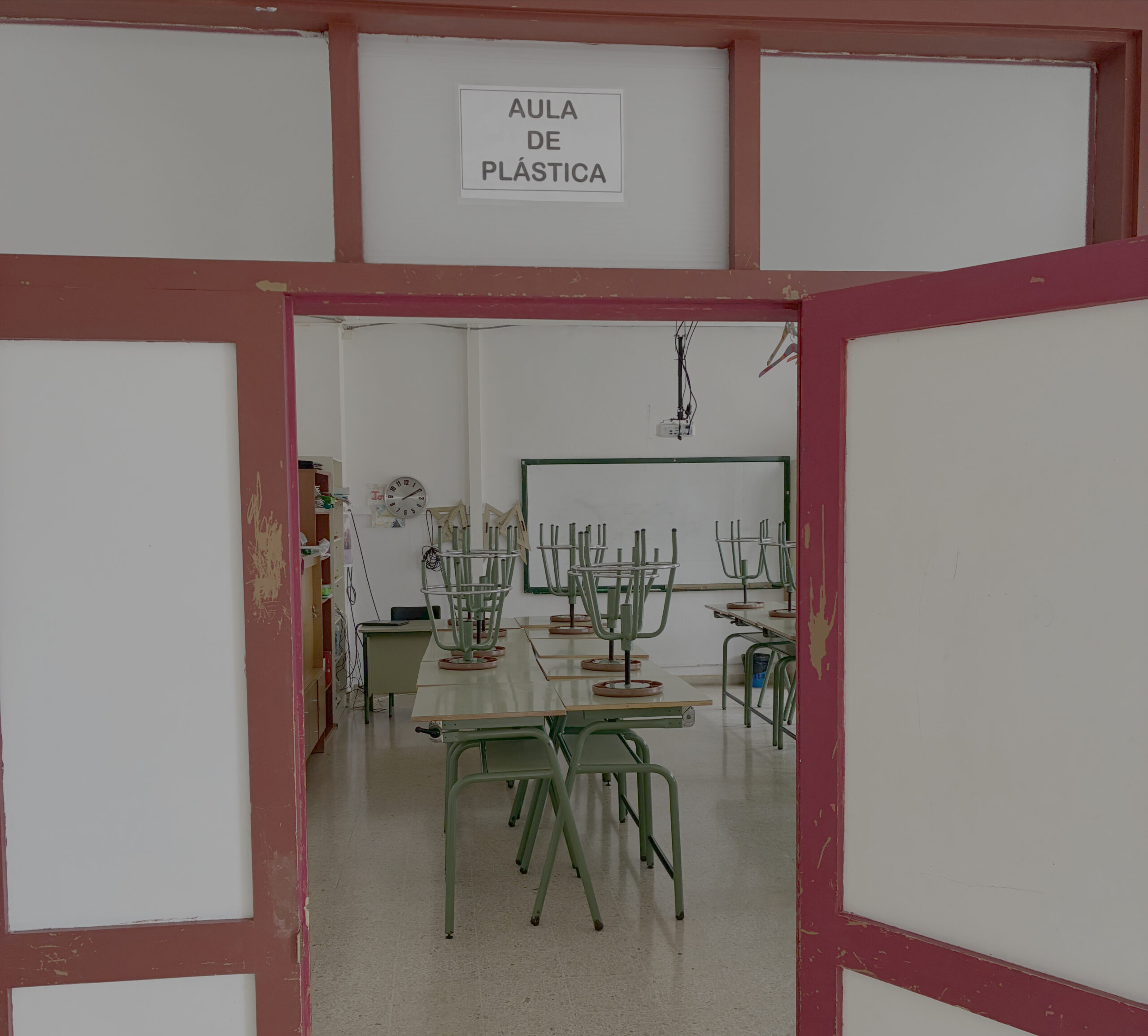
The success of this deployment transcends technology to become a pioneering model of Educational Climate Governance. Cloud Studio IoT has provided the Canary Islands Government with an objective evidence system to protect its most valuable asset: its students. Protocols for emergency based on data can now be activated, investments justified, and adaptation to climate change turned into a policy for student well-being that is active and measurable.
This data-driven governance tool is a cornerstone for the future of Smart Cities. The information empowers the Canary Islands Government to make strategic decisions and protect the health and academic performance of hundreds of students.
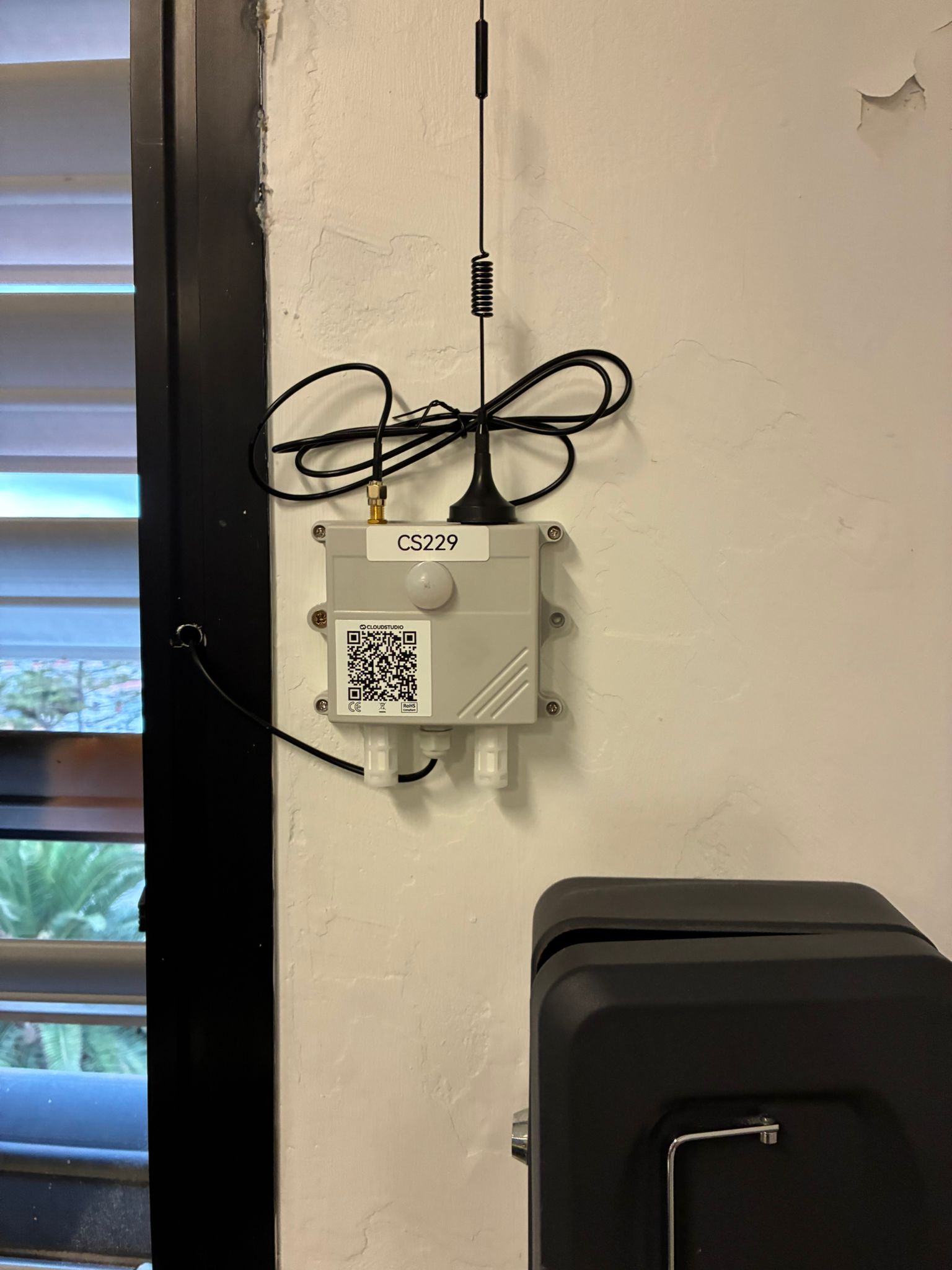
What Matters Most When Scaling IoT Projects?
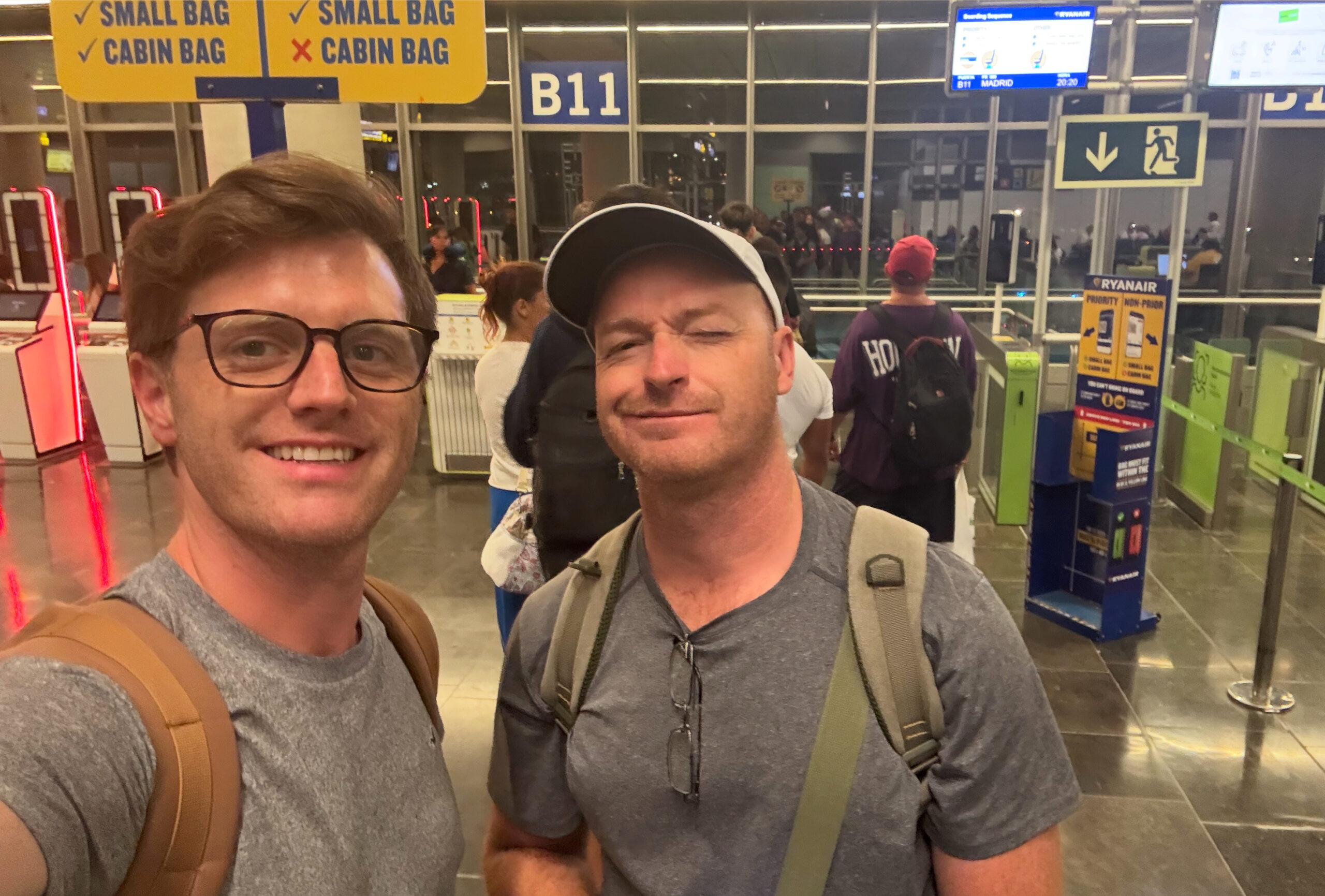
The experience in the Canary Islands reinforces key lessons for success in IoT projects:
- The platform is the core of everything: Success at scale depends on the robustness of the platform that orchestrates management, ingestion, and visualization.
- Choose an Agnostic Platform: A flexible architecture like Gear Studio lets you pick the best hardware for each case with no strings attached.
- Value Lies in the Ecosystem: A top-tier platform enables dashboards, reports, automations, and support portals to be built.
- Find the Human “Why”: Technology is most powerful when it solves a real problem. We didn’t just connect sensors; we helped create a safer learning environment.
The Internet of Things finds its true purpose when it stops being a conversation about sensors and starts being about people. In the Canary Islands, the human “why” was in those hot classrooms. Today, thanks to a robust platform and a tireless team, we’ve helped create a safer and fairer learning environment. And that’s the most important metric of all.
